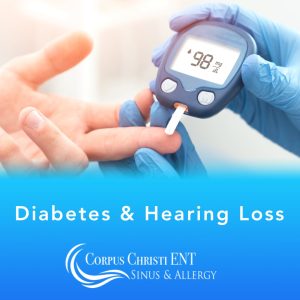 According to the American Diabetes Association, there are more than 34 million people in the U.S. who have diabetes. The number of people with diabetes is increasing in the U.S. Complications from diabetes can result in kidney issues, vision issues, amputations, heart failure and stroke. It can also result in hearing loss. Diabetes is a serious disease and most of us probably know at least 1 person who has it. We know that it is a problem with elevated blood sugar, and that it can affect other systems in our body. For people with severe or uncontrolled diabetes, the risk of severe health complications is much higher.
According to the American Diabetes Association, there are more than 34 million people in the U.S. who have diabetes. The number of people with diabetes is increasing in the U.S. Complications from diabetes can result in kidney issues, vision issues, amputations, heart failure and stroke. It can also result in hearing loss. Diabetes is a serious disease and most of us probably know at least 1 person who has it. We know that it is a problem with elevated blood sugar, and that it can affect other systems in our body. For people with severe or uncontrolled diabetes, the risk of severe health complications is much higher.
While the reason why is unknown, recent studies have shown that hearing loss is twice as common in people who have diabetes than with people who do not have the disease.
And in those individuals who are considered prediabetic, the incident of hearing loss is 30% higher than in the population with normal blood sugars. If you have other risk factors for hearing loss, that can also influence the rate of hearing loss. Things like exposure to noise, aging, and other illnesses can aggravate and accelerate hearing loss.
What we do know, is that individuals who have diabetes seem to have earlier onset of hearing loss than one would expect from the natural aging process. The hearing loss we see is more rapidly progressing and occurs earlier than in the population without diabetes. The hearing loss affects high-pitched sounds most, but can also impact low and mid-range hearing. Hearing loss causes difficulty hearing sounds in general, but mainly causes difficulty in understanding speech. The individual may also have tinnitus, a ringing in the ears which is often the first sign of hearing loss. Complaints of having difficulty hearing in background noise is common as well. Hearing loss can make it difficult for a person with diabetes to participate in social settings, participate in doctor appointments, and help make decisions about their health care.
People who have diabetes should have their hearing tested soon after their initial diagnosis, and then checked annually, just like they have their vision and kidney functions assessed. If you have diabetes, call our office and schedule a hearing test.